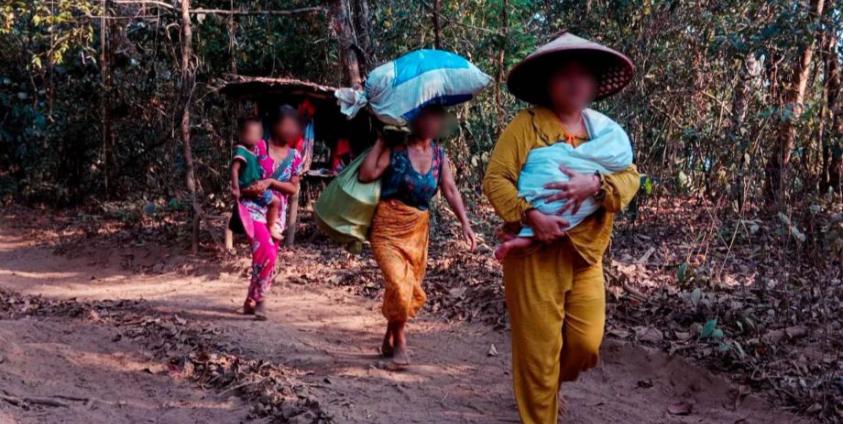In THE Kawthoolei region, where the Karen National Union (KNU) is deployed, the Junta's deliberate targeting of civilians has triggered ever increasing numbers of war-displaced people, now adding up to more than 1 million, KNU spokesperson Padoh Saw Kale Say said.
According to a KNU statement, the number of war-displaced people in Kawthoolei region has risen to over 1 million 70 thousand since the 2021 coup until May 2024.
Of these, more than 600,000 people have received humanitarian aid from KNU, and it is still working to effectively support the entire displaced population, KNU announced.
According to records from Burma News International - Myanmar Peace Monitor (BNI-MPM), the number of war-displaced people nationwide reached over 3 million during the 40-month period from the coup to May 25 of this year, with a particularly notable increase in 2023.
BNI-MPM highlighted that the increase in the war-displaced population coincided with the period when resistance forces shifted from defensive to offensive strategies, leading to widespread conflicts, intensifying threats to people's safety and survival.
Kawthoolei region is divided into seven districts by KNU, with Nyaunglebin district, overseen primarily by KNU 3rd Brigade, having the highest number of war-displaced people, totaling nearly half a million.
Padoh Saw Kale Say also mentioned that KNU is coordinating with international organizations to receive aid in order to effectively assist the entire war-displaced population.
"The Junta continues to carry out deliberate and aggressive attacks on civilians, leaving displaced people in desperate need of help. We are working with international organizations to address this. However the Junta's targeting of the civilian population has worsened, and the number of war-displaced people keeps increasing”, he said.
During the current rainy season, war-displaced people are confronting health risks including flu-like illnesses, diarrhea, and malaria, also more vulnerable to seasonal diseases, susceptible to disasters, and facing exacerbated livelihood crises, according to Saw Nanda Hsu, spokesperson for the Karen Human Rights Group (KHRG).
He also emphasized that as armed conflicts intensified, the number of war-displaced people increased, making humanitarian aid operations harder.
Saw Nanda Hsu also remarked that if the Junta intensifies military operations targeting civilians and human rights violations worsens, addressing the situation will increasingly become more difficult.
The United Nations Office for the Coordination of Humanitarian Affairs (UNOCHA) has reported that since the Junta staged the coup, armed resistance has intensified across Myanmar, a country with a population of 55 million, leading to over 3 million people being displaced from their homes due to clashes.







